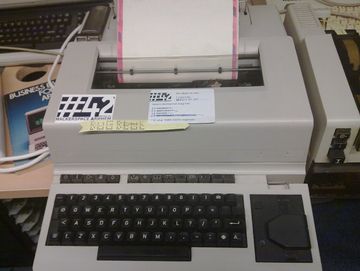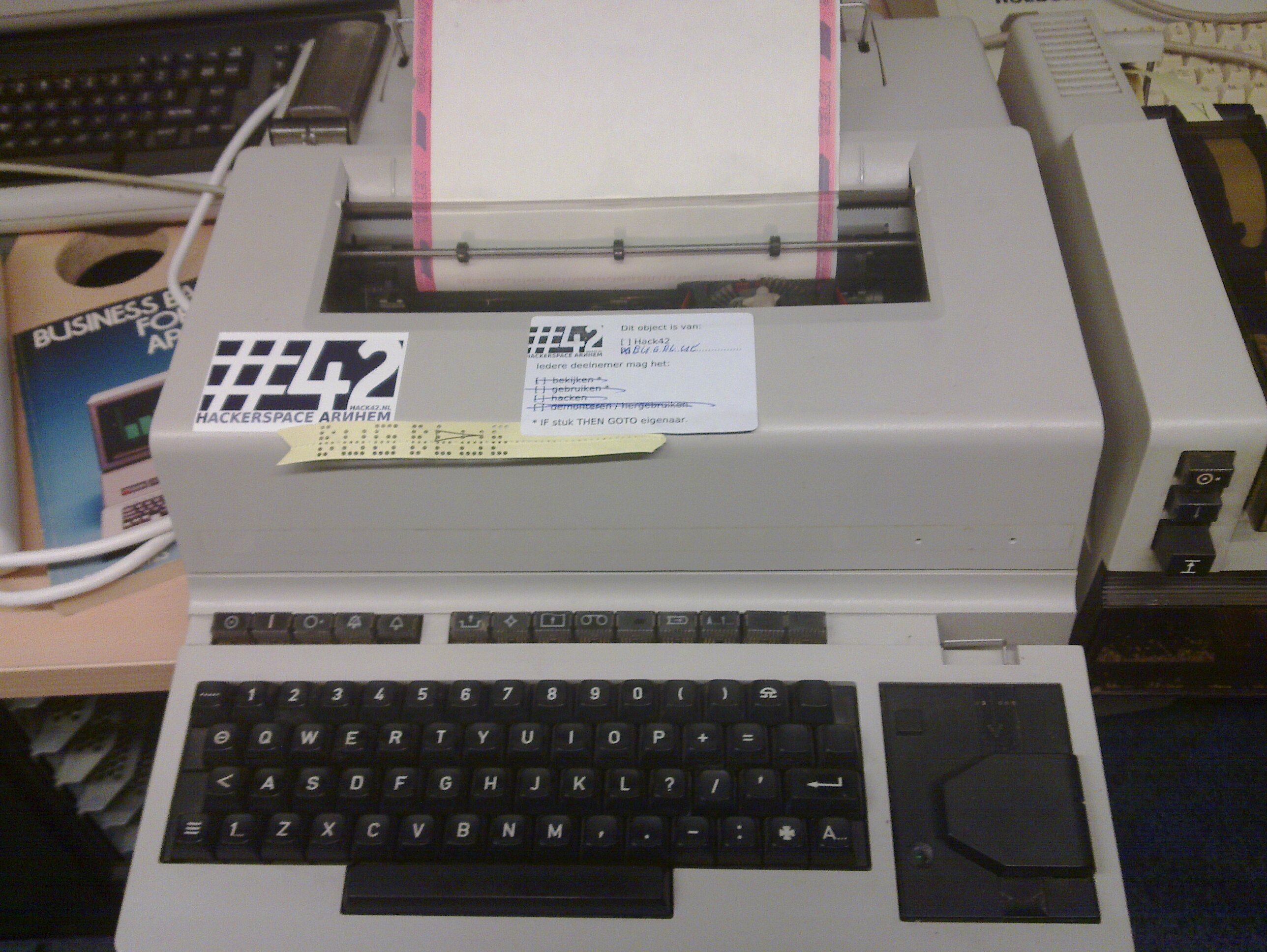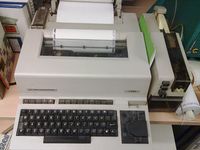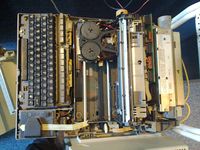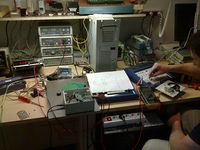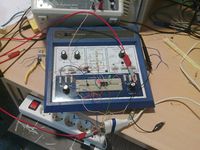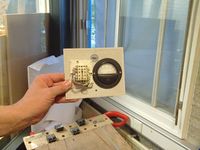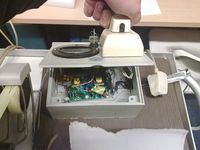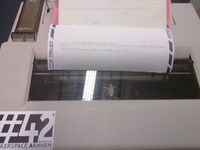| Regel 37: | Regel 37: | ||
:The result of eightdots work | :The result of eightdots work | ||
== Step 5: Write some code == | == Step 5: Write some code == | ||
| − | + | With TX and RX out of the picture some code is needed to do bitbanging magic. The code is written in python, for no other reason than [http://pyserial.sourceforge.net/pyserial_api.html pySerial] being the first hit on Google for "serial set dsr". A bit of insight in the timings (50 baud, 1 bit is 20ms) and some coding skills do work very well. | |
== Step 6: Test the code (and tweet it) == | == Step 6: Test the code (and tweet it) == | ||
Versie van 15 jun 2011 22:44
| Project: Twitter Telex | |
|---|---|
| Naam | Twitter Telex |
| Door | BugBlue, Stoneshop, eightdot |
| Status | Uitvoer |
| Madskillz | Electronics, Telex protocol, Baudot Code, Programming, Soldering, Mad ideas |
| Doel / Omschrijving | |
| Connecting the Siemens Fernschreiber Telex to Twitter and paypal | |
| Alle Projecten - Project Toevoegen | |
Background
Twittering is cool, Retro™ hardware is cool and so RetroTwittering obviously is cool². Which is why BugBlue decided to hook our Siemens T-1000 Fernschreiber (telex) up to the internetz. All it required was some signal conversion electronics, python coding and some deep knowledge of ancient protocols.
Step 1: Find the telex
We just happened to have a late 1970's model telex standing around doing nothing but being pretty, well sort of. Since we started working on it we've seen a number of such machines on Ebay. These are pretty hefty machines though, you might want to look somewhere close enough to pick it up.
- Found it
Step 2: Test if it works
Check if all the keys work and behave like they should. Also test the internal interfaces, the punch tape writer, punch tape reader etc etc etc.
- Creative people do creative tests.
Step 3: Build a circuit
The telex interface is based on the current loop principle at a speed of approx. 50 baud. To communicate over a serial line to a modern day computer we need some electronics to generate the current loop and read the return signals. We opted for a USB-to-Serial adapter but, as this does not offer speeds as low as 50 baud, the control signals are used instead of the TX and RX pins.
For this step you need some knowledge about electronics, optocouplers, voltages, power supplies, resistors and more stuff BugBlue did not know about.
- However some smarter people do know this stuff.
Step 4: Build a nice box to house the electronics
Since having 230Volt open on the table is not really on everyones wishlist some housing is a big +1, an amp meter was thrown in for authentic looks.
- The result of eightdots work
Step 5: Write some code
With TX and RX out of the picture some code is needed to do bitbanging magic. The code is written in python, for no other reason than pySerial being the first hit on Google for "serial set dsr". A bit of insight in the timings (50 baud, 1 bit is 20ms) and some coding skills do work very well.
Step 6: Test the code (and tweet it)
- Tweeting pictures is a lame hack, but the code wasn't ready yet. Link to real tweets very soon.
Step 7: Finish and polish it
This needs to be done.
Done
Todo
- Create PCB and solder components
- Change software to interface with paypal
- Order paper and ink
Later
- Create coin collector to interface with computer
- Change software to interface with coin collector
- Find a nice 'who are you' line
- Change the 'Here-is' identity to 'Hack42'
